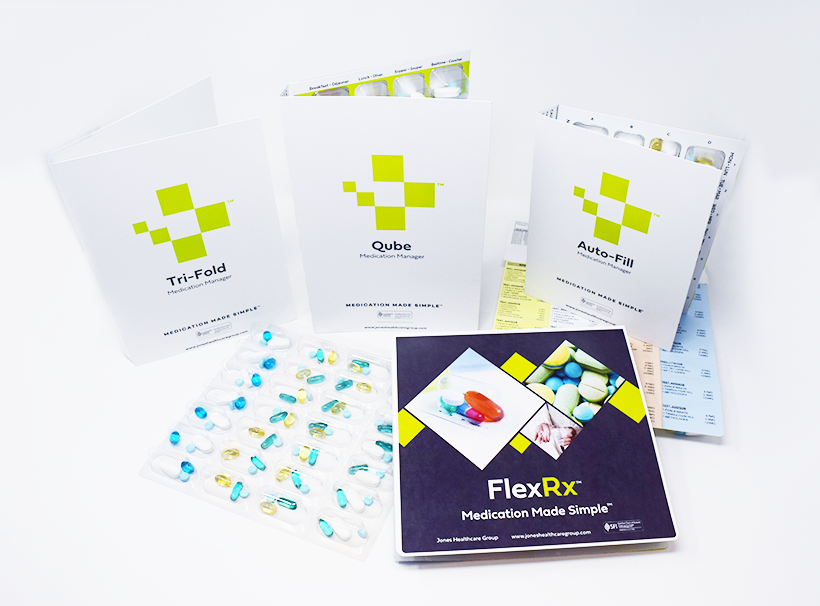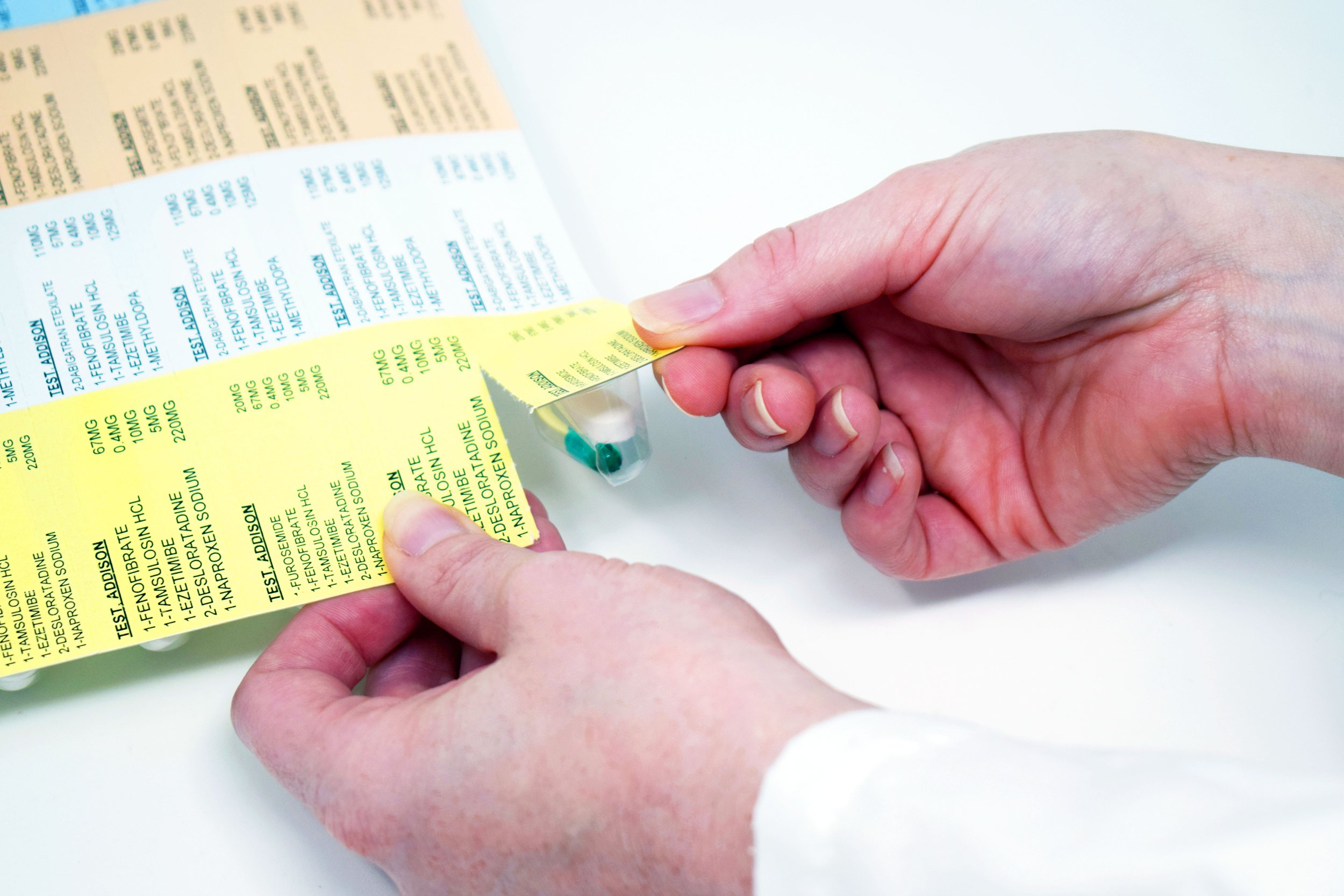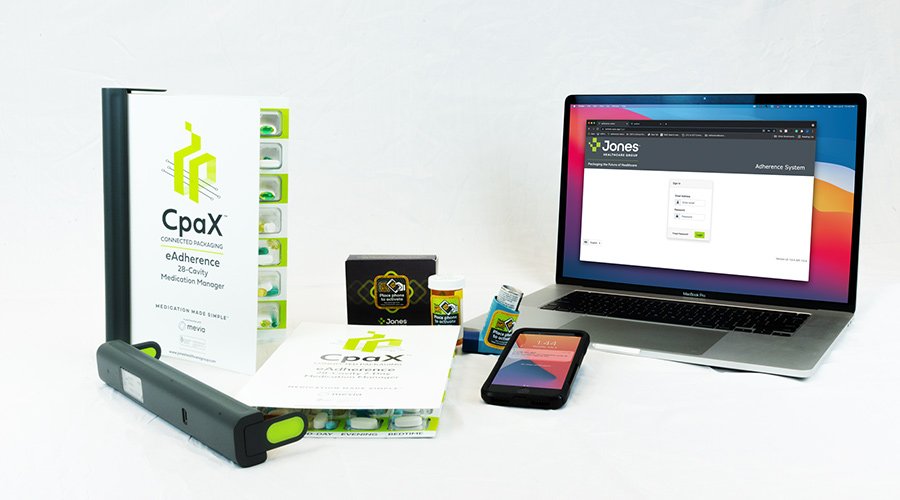If You’re Struggling to Take Medications as Prescribed, Pharmacists Offer Practical Solutions to Stay on Track
As originally published by YouAreUNLTD, on July 8, 2021
Pharmacists are trained to spot the signs of someone struggling to take their prescribed medications. Taking them as directed is a chronic problem in Canada and worldwide. It can have serious health repercussions, from hospitalization to disease progression. As members of a healthcare team, pharmacists are there for patients to prevent those consequences, by offering invaluable support and solutions for managing medical conditions.
“Patients often struggle with the number of medications they take in terms of remembering when and how to take them,” explains Jason Mackie, pharmacy owner, Arcade and Jory Guardian Pharmacy in Midland, Ont. “Pharmacists are in a position to notice this when they are checking prescriptions. Often, we notice that a medication is being refilled later than it should be. If this is the case, we can have a discussion with patients about barriers they are facing that prevent them from taking medications as prescribed.”
“PATIENTS OFTEN STRUGGLE WITH THE NUMBER OF MEDICATIONS THEY TAKE IN TERMS OF REMEMBERING WHEN AND HOW TO TAKE THEM.”
Often, he’ll assist customers with adherence by filling their medications using a blister pack, a convenient way of organizing multiple prescriptions. It reduces the need to juggle vials and separate instructions for each medication. With light pressure, the seal of the compartment breaks and the pills can be accessed. There is a wide range of blister (also called adherence or compliance) packaging available through pharmacists to provide medication for a week or one month as needed with one multi-dose card.
“These specialized packaging solutions help patients deal with the issue of remembering when and how to take their medications,” says Mackie. “It is especially helpful for people with complex medication regimens requiring numerous medications multiple times per day. We can organize these medications in blister packs and lay them out in terms of which day or times of the day they should be taken.”
Leading the way to new solutions for medication adherence
Jones Healthcare Group addressed the need to help patients with adherence in the 1980s, when it became the first company to offer multi-dose medication packaging for pharmacies to dispense to patients. Working with a pharmacist from Vancouver, the company developed a calendarized card where multiple medications could be organized in an easy-to-access, safe format. Jones Healthcare continues to innovate and partner closely with pharmacists in Canada, the U.S., Europe and other countries around the world.
“We really want to stay close to our pharmacies as their needs change through the years,” says Stephen MacNeill, Jones Healthcare Group’s senior vice-president – Canadian pharmacy, “We’re right there to talk to them, see what they need, and develop solutions. We grow our portfolio of products to make sure they have a Jones medication adherence card solution for every patient need.”
Input from pharmacies, whether in a hospital or long-term care setting, small, large, or a regional pharmacy, is invaluable. They help drive new offerings – for example, a flex pack, designed for portability. Ideal for active lifestyles, it has perforated blisters so that you can just tear off one or two days’ worth of medications to accommodate overnight trips or day-long activities. Again, the development came out of ongoing collaborations between Jones and pharmacists, explains MacNeill.
Patients are front and centre of the Jones Healthcare and pharmacist relationship. Nearly two-thirds of the older adults among them are prescribed five or more different drug classes, with more than one-quarter being prescribed over 10 drug classes, according to a Canadian Institute of Health report. In these scenarios, the risk of non-compliance increases. “Medication adherence is a big issue that has a serious impact on health,” he says. “It’s a kind of sleeping giant.”
“MEDICATION ADHERENCE IS A BIG ISSUE THAT HAS A SERIOUS IMPACT ON HEALTH. IT’S A KIND OF SLEEPING GIANT.”
Whether we’re managing our own medications or assisting a loved one, ensuring that they are taken as prescribed can be a challenge. “Patients really want to understand and be involved in their own self-care,” adds MacNeill. “With that in mind, we make it very simple for them to utilize our medication adherence products and offer a range of solutions with 15 options currently available.”
Disrupting the medication adherence space
There are more game-changing new products coming in the future from Jones Healthcare. “We are continuing to push the envelope for medication adherence solutions,” says Trevor Noye, Jones Healthcare Group’s senior vice president – medication adherence. “The extension for us is going to come through the application of technology to our multi-dose packages. We have created something called a ‘connected package.”
One type of connected packaging, called the electronic adherence card, allows the package to communicate with software to record when a blister has been broken, and register time, date, and geographic location. It will transform the tracking of medication adherence from today — phoning mom to ask her if she is taking her pills correctly — to tomorrow: pinpoint accuracy using a connected package, he explains. “This is the evolution of medication adherence packaging – to move from a well-designed package that a patient will interact with normally to a package with connected technology, which allows us to truly monitor adherence.”
Another type of connected packaging uses near-field communication (NFC) tags – the same ones used on debit and credit cards. For prescription drugs, a tap on the medication packaging can launch educational videos about your condition, what you’re taking, potential side effects, correct usage, as well as track adherence.
Both connected packaging technologies can be set up to send a text or email message to a caregiver or healthcare provider, so they know the medication has been taken, as well as send patients reminders for doses. “Our connected packaging is expandable – from the ability to tell us when you’ve broken the blister to the creation of an entire patient support program that actually builds and sustains adherence,” says Noye.
Connected packaging is now being tested in select communities in Canada, the United States and Europe. Jones Healthcare is looking at full-scale production by the end of 2021, followed by a launch in pharmacies in 2022. It’s an exciting development for patients and caregivers. “Along with peace of mind, it gives patients more control to manage their medications. As we age, we tend to be taking more meds with a more complex regime. Connected packaging allows us to remind and motivate patients to stay on track. And for caregivers, they won’t have to worry about whether their loved ones have taken their medication.”
“THE BOTTOM LINE IS THAT COMBINING TECHNOLOGY WITH ADHERENCE PACKAGING WILL REALLY DRIVE IMPROVEMENTS IN MEDICATION ADHERENCE.”
For physicians, it reduces the chance of misdiagnosis. Some patients aren’t forthcoming to their doctors or pharmacists about skipping doses or not using their prescription correctly and are left wondering why a medication isn’t working. Connected packaging will be invaluable at every level, as it decreases guesswork. Efforts are also underway to make blister packs more sustainable and easier to recycle.
As Noye points out: “There is a lot happening – you’re going to see new products in the future that really change the way that you’re able to support patients and caretakers.”
The best advice is to talk to your pharmacist if you (or someone you take care of) are struggling to take their medication as prescribed. Noye also adds: “The bottom line is that combining technology with adherence packaging will really drive improvements in medication adherence.”





